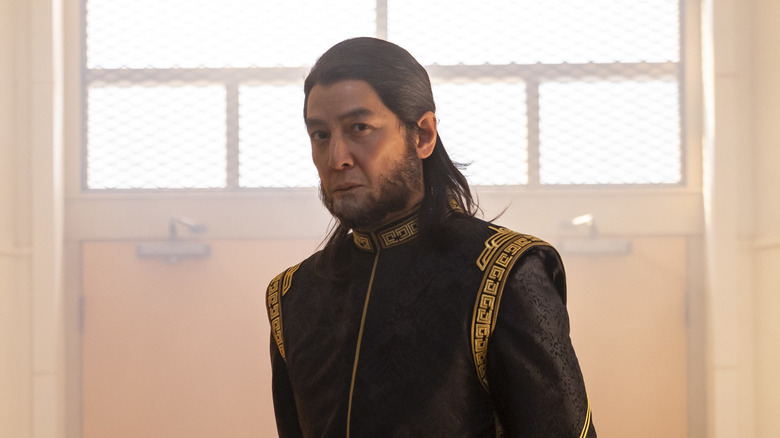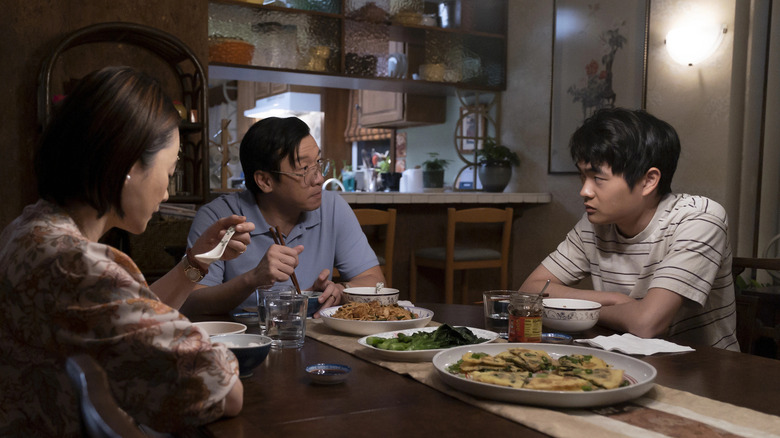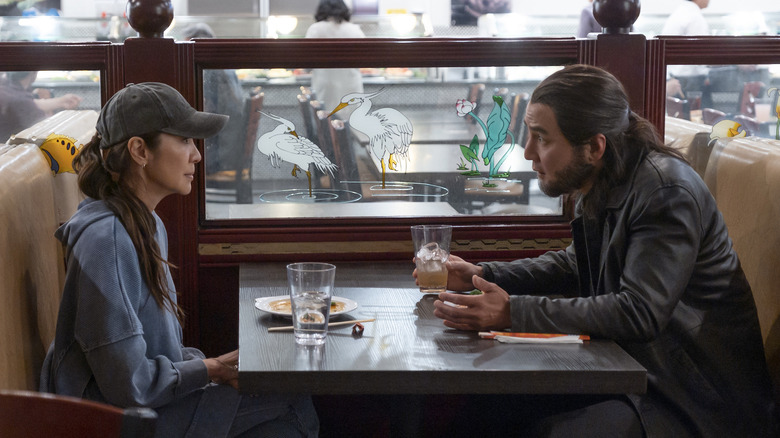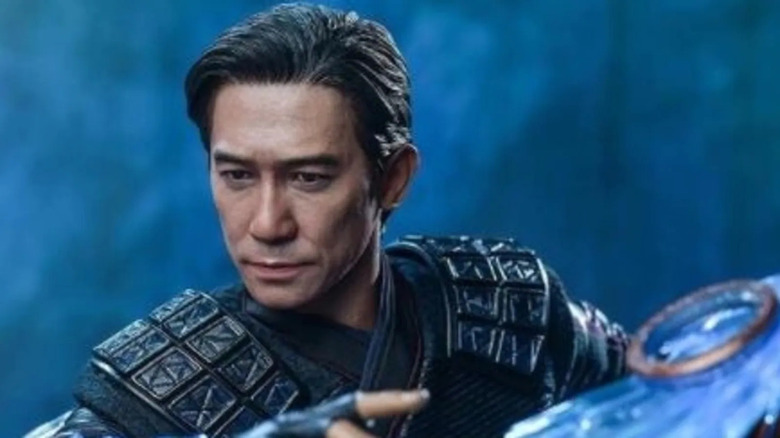Destin Daniel Cretton And Daniel Wu Discuss The Representation And Mythology Of American Born Chinese - Exclusive Interview
It's hard to believe that Disney+ has only been out for a few years, given the hefty number of shows and movies the platform has launched. Between the MCU, "Star Wars," and original new projects, Disney has plenty to work with. But now, the streamer is diving into the Asian American experience with the upcoming series "American Born Chinese."
From the creative team to the cast, the story is told from lived experiences, adding a level of authenticity at all levels. "Shang-Chi and the Legend of the Ten Rings" writer and director Destin Daniel Cretton is an executive producer as well as a director on "American Born Chinese." He's also slated to helm "Avengers: The Kang Dynasty" and a "Shang-Chi" sequel.
Meanwhile, Daniel Wu takes on the iconic and mythological role of the Monkey King. Wu has appeared in movies like 2018's "Tomb Raider" and 2016's "Warcraft," along with series like "Into the Badlands" and "Westworld."
Disney invited Looper to New York Comic Con last year, where we got the opportunity to exclusively sit down with Wu and Cretton to discuss the impact of the show's representation and mythology and what it was like for Cretton to dive into this series after "Shang-Chi" and reconnect with a few actors from the MCU project. He also named the "Shang-Chi" star who isn't in "American Born Chinese" whom he'd love to see on the show.
From Shang-Chi to American Born Chinese
Destin, you're coming to "American Born Chinese" from "Shang-Chi." From a representation standpoint, what does it mean to you that Disney is supporting these massive, culturally rich projects? And what have been the greatest joys of taking on these [projects]?
Destin Daniel Cretton: The greatest joy isn't only having a new show that is about a culture like the Asian American culture, but that they are allowing us to do it authentically. We're able to put up subtitles and not only speak Chinese but speak the right dialect, the right use, the right accent for where these characters are from in China, and also us[e] the correct accent when they are speaking English.
All of these things are things that maybe were looked at as being [riskier] at some point. But right now, audiences are hungry for authenticity, and they don't want to be lied to or have anything whitewashed.
Digging into the mythos
Daniel, you play a pretty epic mythological character. How much research did you do for this role? And what has the process been like to transform you into this very intense aesthetic?
Daniel Wu: The Monkey King is super iconic. I've seen literally hundreds of versions of the "Journey to the West" story because in Asian culture, it is prevalent everywhere. It's [in] TV, comics, cartoons, movies. Almost every actor I've known [has played] the Monkey King at some point. I've been asked to play the Monkey King many times in my career in Asia, but I never did it because I always felt that there was nothing I could bring new into the story, especially to the "Journey to the West" story, because everyone knows it so well.
But this one with "American Born Chinese" is a new take on the character because although we flash back to the younger version of himself, we're seeing an older version of himself as [a] father — this older, wiser, maybe more stoic version of the Monkey King — which I'd never seen before in any writing or versions of the story.
It was really interesting because I'm at a time in my life where I'm a father, and I have a daughter who's 9 years old. I have lots of expectations. I'm still Asian, so I still have a lot of very strict expectations [for] my daughter. I'm going through a time in my life where I'm feeling those same feelings. I was able to bring a lot of those feelings to the character and the relationship between Monkey King and Jimmy's character, the younger Monkey King, or the younger monkey, and how he sees elements of his younger self in his son, and he doesn't like it.
At the same time, he can't deny that he was that way too. So he's struggling with this idea of, "Do I let him grow on his own, or do I try to form him?" I'm actually dealing with that in my life, too, right now.
Also, my father was very sick while we were making this, and he passed away in the middle of it, so it brought back lots of memories of how my father wanted me to be when I was growing up. It was a lot of combinations of things in my personal life that informed me of how to play this character.
Intertwined casts
Destin, is there anyone else from the "Shang-Chi" cast that you want to head over to "American Born Chinese"? And is there a character or mythological being you think they'd nail?
Wu: We could put Monkey King in there. I know some monkeys.
Cretton: In terms of actors, I would work with Tony Leung any day of the week. I'm sure he'd come in at some point. Maybe [in] Season 2, we'll try to get Tony to play a god or something.
What has it been like playing with these guys again [on "American Born Chinese"] so soon after ["Shang-Chi"]?
Cretton: It was wonderful to reunite with some of the talent from "Shang-Chi" but also to bring in new, amazing talent that I haven't been able to work with before. It was such a symbiotic [relationship]. Everybody clicked. It was such a cool experience to create with everybody.
One thing to remember is there's a reason why this is called "American Born Chinese." This isn't a foreign film that we're introducing to people. This is an experience, a very specific experience, [of] what it is like to be Asian American. I think anybody who is going to watch this show is going to relate to the feelings of being an outsider or feelings of trying to be something that you're not and learning how to be happy with who you are, regardless of whether you're accepted by your people [or by] the popular kids in high school. Those are the main themes [that] attracted me to this project and what I really like.
This interview has been edited for clarity.
"American Born Chinese" premieres on May 24 on Disney+.



